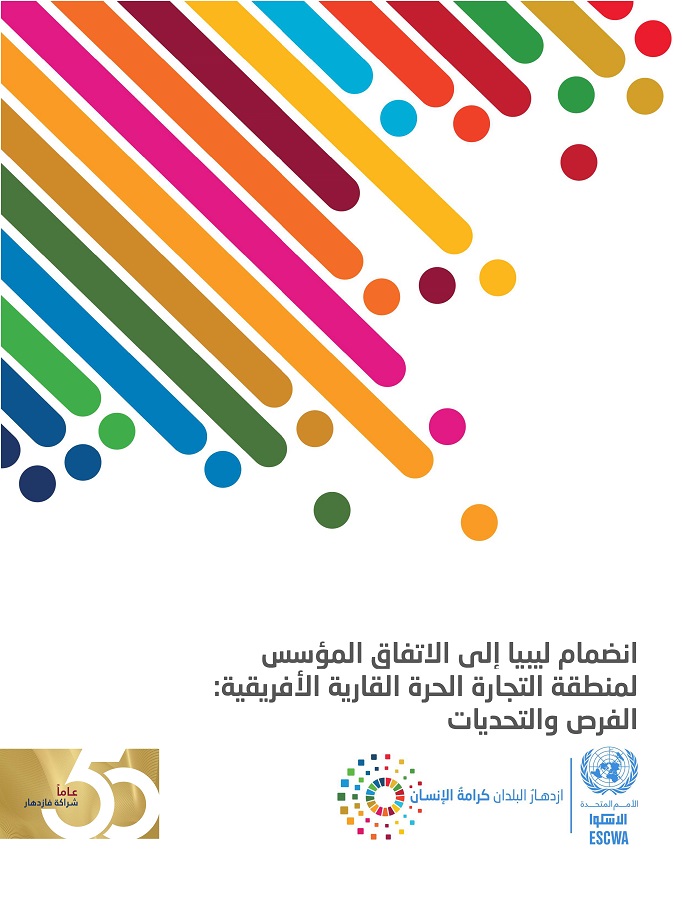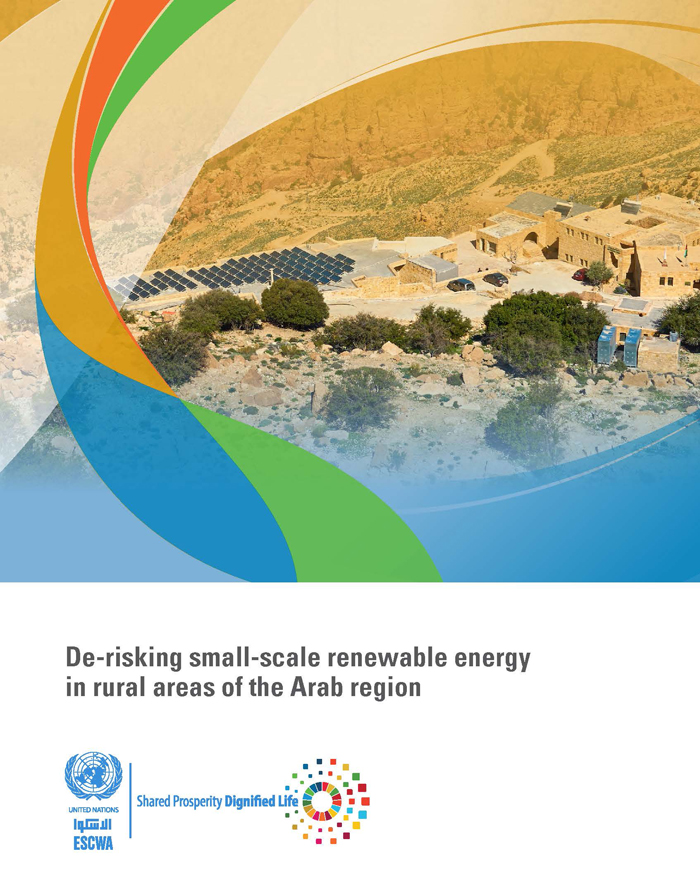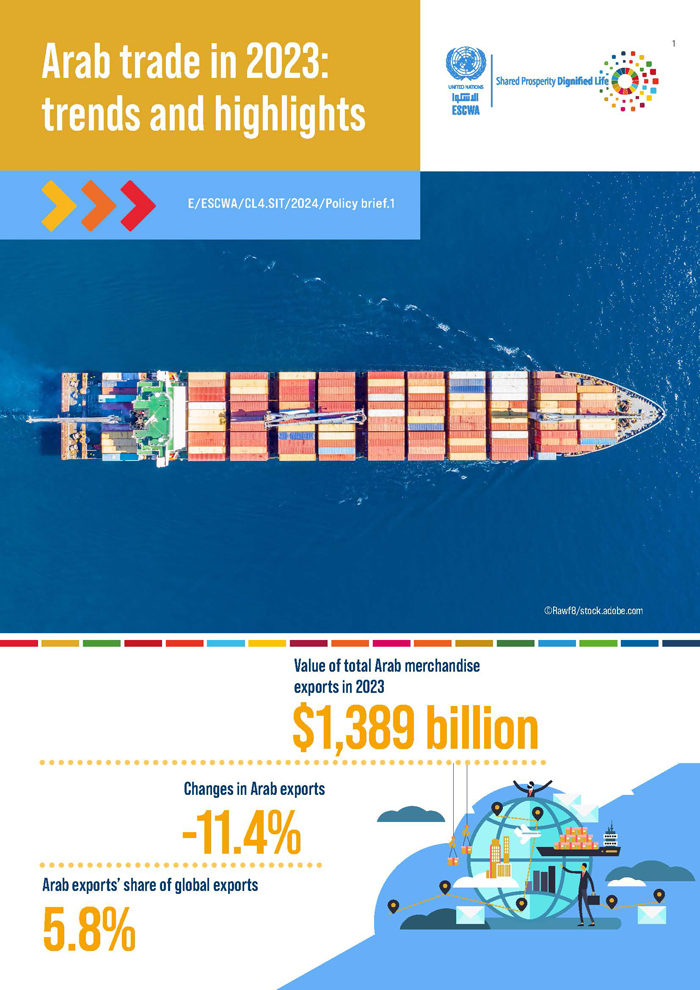
ESCWA Publication: E/ESCWA/CL3.SEP/2023/TP.5
Country: State of Libya
Publication Type: Reports & studies
Cluster: Shared Economic Prosperity
Focus Area: Debt and fiscal policy, Financing for development, Macroeconomics, Trade & regional connectivity
Initiatives: Financial & macroeconomic statistics for National accounts, Public finance and inclusive fiscal policy
SDGs: Goal 2: Zero Hunger, Goal 7: Affordable and Clean Energy, Goal 8: Decent Work and Economic Growth, Goal 10: Reduced Inequalities, Goal 12: Responsible Production and Consumption, Goal 16: Peace, Justice and Strong Institutions, Goal 17: Partnerships for the Goals
Keywords: Libya, Trade agreements, International trade, Foreign trade, Imports, Exports, Economy measures, Economic policy, Investments, Free trade, Economic growth
Libya’s accession to the agreement establishing the African Continental Free Trade Area: Opportunities and Challenges
October 2023
The African Continental Free Trade Area, which entered into force on 1 January 2021, is one of the flagship projects of the African Union Agenda 2063 and the largest free trade area in the world in terms of the number of Member States, with fifty-four countries and eight regional economic groups. The agreement establishing the African Continental Free Trade Area, in terms of the laws and protocols regulating it, is included in a group of expanded agreements that keep pace with the most important modern differential trade agreements in the world. Despite the importance of this agreement for the path of development in Africa and the efforts of Member States to develop their economies and diversify their markets, it poses special challenges to the economies of countries that are characterized by the dominance of the oil sector and weak economic diversification, which need a reasonable period to strengthen economic diversification policies and gain the competitiveness required to break into global markets, while competing with goods imported from countries partnering in the agreement.
This report indicated that the Libyan economy needs to develop an integrated strategy for economic diversification for Libya’s success on a fundamental path; it also needs to begin implementing it before fully committing to the terms of the agreement, which is considered a condition for regional integration; and the necessity of joining the agreement, but with criteria that guarantee the future of Libya; and the ability to achieve economic diversification; and to develop accompanying policies that include all influences on economic policy, which must rely on an ambitious national project to facilitate trade and push investment and export. The report presents a set of recommendations that, if implemented, Libya can begin the negotiation process for accession by specifying its trade obligations with Member States and economic policies capable of enhancing the role of foreign trade in the path of growth and development in Libya.
Related content
Debt and fiscal policy
, Financing for development
, Macroeconomics
, Trade & regional connectivity
,
The African Continental Free Trade Area, which entered into force on 1 January 2021, is one of the flagship projects of the African Union Agenda 2063 and the largest free trade area in the world in terms of the number of Member States, with fifty-four countries and eight regional economic groups. The agreement establishing the African Continental Free Trade Area, in terms of the laws and protocols regulating it, is included in a group of expanded agreements that keep pace with the most important modern differential trade agreements in the world. Despite the importance of this agreement for the path of development in Africa and the efforts of Member States to develop their economies and diversify their markets, it poses special challenges to the economies of countries that are characterized by the dominance of the oil sector and weak economic diversification, which need a reasonable period to strengthen economic diversification policies and gain the competitiveness required to break into global markets, while competing with goods imported from countries partnering in the agreement.
This report indicated that the Libyan economy needs to develop an integrated strategy for economic diversification for Libya’s success on a fundamental path; it also needs to begin implementing it before fully committing to the terms of the agreement, which is considered a condition for regional integration; and the necessity of joining the agreement, but with criteria that guarantee the future of Libya; and the ability to achieve economic diversification; and to develop accompanying policies that include all influences on economic policy, which must rely on an ambitious national project to facilitate trade and push investment and export. The report presents a set of recommendations that, if implemented, Libya can begin the negotiation process for accession by specifying its trade obligations with Member States and economic policies capable of enhancing the role of foreign trade in the path of growth and development in Libya.



